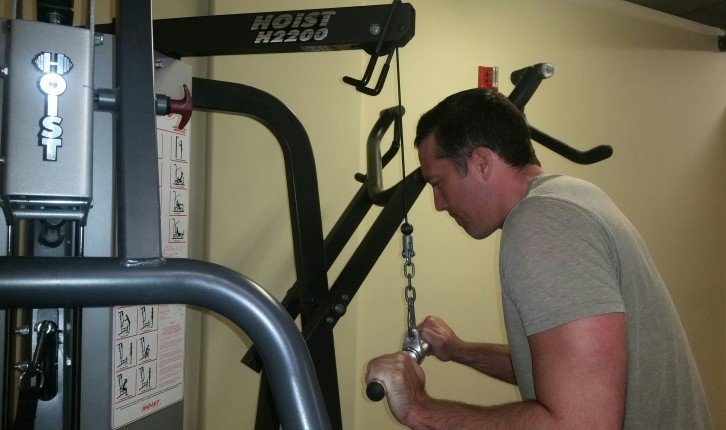Imagine you’re casually chatting with your friends, and someone mentions that a person is “fit slang.” What on earth does that mean? In this article, we’ll uncover the true meaning behind this intriguing expression. Whether you’re a language enthusiast or simply curious about the latest slang, we’ve got you covered. Get ready to unravel the mystery of what it truly means when someone is considered “fit slang.”
Defining Fit Slang
Understanding Fit as a Slang Term
Fit, as a slang term, refers to someone who is physically attractive and in good shape. It goes beyond the literal meaning of being physically fit and is often used to describe individuals who possess a certain level of aesthetic appeal or attractiveness. Fit slang is commonly used among younger generations and has gained popularity in social media platforms and pop culture.
Origins and Evolution of Fit Slang
The origins of fit slang can be traced back to various cultural influences. In the late 20th century, the concept of physical fitness became increasingly popular, leading to the rise of fitness trends and the emphasis on maintaining a healthy lifestyle. As fitness became more prominent in society, the term “fit” started to evolve to encompass not only physical fitness but also attractiveness and desirability.
Physical Fitness and its Influence on Slang
Linking Physical Fitness and Slang
The connection between physical fitness and slang is evident in the way language adapts to reflect societal trends and values. The rise of fitness culture has led to the integration of fitness-related terminology into everyday language, with words like “fit” being used as a slang term to describe desirable traits in individuals.
Impact of Fitness Trends on Slang Usage
Fitness trends play a significant role in shaping slang usage, as they introduce new concepts and terminologies that find their way into popular vernacular. From workout routines to diet plans, fitness trends give rise to new terms that people adopt and incorporate into their everyday conversations, resulting in the evolution of fit slang.
Fit Slang as a Descriptor
Describing an Attractive or Physically Fit Person
Fit slang is commonly used to describe someone who is considered physically attractive or in good shape. Instead of using more traditional terms like “good-looking” or “attractive,” people often opt for fit slang to add an element of coolness and modernity to their descriptions. It has become a shorthand way of expressing admiration for someone’s physical appearance.
Common Fit Slang Terms and Their Meanings
There are various fit slang terms that are commonly used to describe attractive individuals. Some examples include “ripped,” “jacked,” “toned,” and “shredded.” Each term denotes a particular level of muscularity and physical fitness. While “ripped” refers to someone with well-defined muscles and low body fat percentage, “toned” implies a more subtle level of muscular definition.
Fit Slang in Social Media and Pop Culture
Use of Fit Slang in Social Media Platforms
Social media platforms have played a significant role in popularizing fit slang. Hashtags like #fitspo and #fitfam are commonly used to share fitness-related content and promote a healthy lifestyle. Fit slang terms are often used in captions, comments, and conversations surrounding fitness and physical attractiveness on social media platforms.
Pop Culture References and Influence on Fit Slang
Pop culture, including movies, music, and celebrity culture, also influences the usage of fit slang. Iconic figures in the entertainment industry often contribute to the adoption and spread of fit slang terms. Their influence can be seen in the way fans and followers imitate their favorite celebrities’ language and incorporate it into their own vocabulary.
Regional Differences and Variations in Fit Slang
Fit Slang Across Different English-Speaking Regions
Fit slang may vary across different English-speaking regions. Cultural nuances and regional dialects can influence the specific terms used to describe physical attractiveness. For example, in the United Kingdom, the term “fit” is often used to describe someone who is attractive, while in the United States, “hot” or “sexy” may be more commonly used.
Unique Fit Slang Variations in Local Communities
Within local communities, there can be unique variations of fit slang that are specific to certain groups or subcultures. For instance, fitness enthusiasts may use terms like “swole” or “gains” to describe muscular individuals, while those involved in dance or sports may use terms like “flexible” or “agile” to highlight physical abilities alongside attractiveness.
Gender and Fit Slang
Gender Stereotyping and Fit Slang Usage
Fit slang usage can be influenced by gender stereotypes and societal expectations. Historically, men have been more frequently associated with fit slang, with terms like “beefcake” or “hunk” used to describe muscular and attractive men. However, as the awareness of gender diversity and inclusivity increases, fit slang is becoming more inclusive and applicable to individuals of all genders.
Fit Slang Terms Specific to Genders
While there are fit slang terms that can be used to describe individuals of any gender, there are also terms that are more specific to certain genders. For example, slang terms like “hourglass figure” or “dadbod” are often used to describe female and male bodies respectively. These gender-specific terms reflect societal expectations and ideals associated with physical attractiveness.
Fit Slang and Body Positivity
The Relationship between Fit Slang and Body Image
Fit slang can have both positive and negative impacts on body image. On one hand, it celebrates physical fitness and promotes a healthy lifestyle, encouraging individuals to take pride in their bodies. On the other hand, fit slang can perpetuate unrealistic beauty standards and create pressure to conform to a certain physical ideal.
Discussion of Positive and Negative Impacts on Body Positivity
The positive aspect of fit slang lies in its ability to create a sense of community and motivation around fitness and healthy living. It can serve as a source of inspiration for individuals to strive for their own health and well-being. However, it is important to recognize that fit slang should not be used to shame or belittle those who may not fit into traditional ideals of attractiveness.
Evolving Fit Slang and Trends
New Emerging Fit Slang Terms
Fit slang is constantly evolving, with new terms emerging as fitness trends and cultural influences change. From buzzwords like “gains” and “shredded” to more recent terms like “thicc” and “snatched,” fit slang adapts to reflect the shifting language of fitness and attractiveness. These emerging terms often arise organically within communities and gain traction through popular usage.
Influence of Fitness Industry on Slang Development
The fitness industry plays a significant role in the development of fit slang. As new workout routines, exercise equipment, and diet plans are introduced to the market, they bring along with them new terminology and buzzwords. The industry’s influence on fit slang is evident in the adoption of terms like “crossfit,” “yoga body,” or “keto” to describe specific fitness lifestyles or body types.
Fit Slang and Language Evolution
Shifting Meanings and Adaptation of Fit Slang
Fit slang has the power to influence the general English language by introducing new meanings and adaptations. Words like “fit” and “toned” have broadened their definitions beyond their original use in fitness-related contexts. They are now commonly used in everyday language to describe a wide range of situations and attributes, further blurring the lines between fitness jargon and colloquial language.
Influence of Fit Slang on General English Language
Fit slang’s influence on the English language can be seen in the way it shapes and adds nuances to the vocabulary. As fit slang terms become more popular and well-known, they become integrated into general conversation, allowing individuals to express themselves in a way that resonates with current cultural trends. This ongoing evolution of language is a reflection of how society adapts and changes over time.
Playfulness and Irony in Fit Slang
Humor and Irony as Elements of Fit Slang
Fit slang often includes humorous or ironic elements that add a playful tone to the conversation. Slapstick terms like “gym bunny” or “fitness freak” playfully exaggerate the obsession with physical fitness. This lightheartedness and irony contribute to the overall enjoyment and camaraderie surrounding the use of fit slang.
Analysis of Playful Fit Slang Expressions
The playfulness in fit slang expressions can be seen in the creative combination of words and the use of hyperbole. Terms like “swole patrol” or “abs for days” create vivid mental images and add an element of fun to the language. This playful use of fit slang enhances communication and fosters a sense of shared experience within fitness communities.
As fit slang continues to evolve, it remains an integral part of contemporary language. Its popularity in social media, its influence in pop culture, and its ability to reflect societal trends and attitudes make it a dynamic and ever-changing subset of slang. Understanding the origins, variations, and impacts of fit slang can provide valuable insights into how language evolves and how fitness and attractiveness are perceived in modern society. So next time you hear or use fit slang, remember the rich history and cultural significance behind these seemingly simple words. Stay fit, stay trendy, and keep the language alive!



